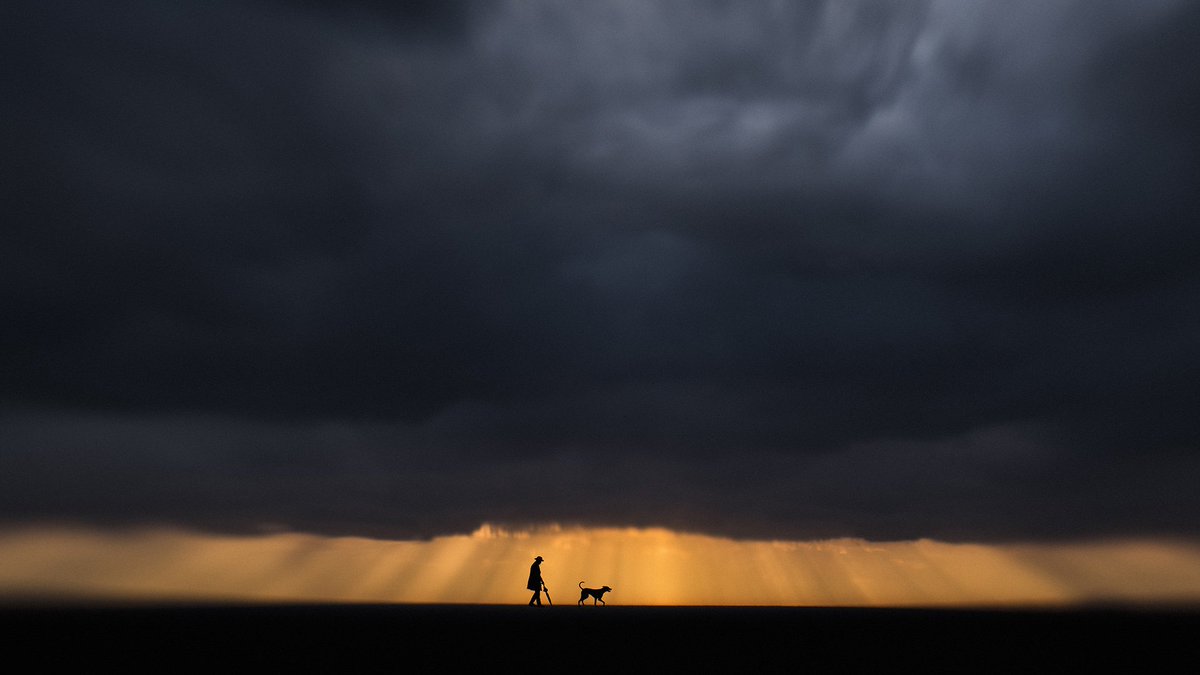I panic when I hear the state is closing down. The heart-pounding, mind-reeling kind, where emotion triumphs over reason and you have to act. I usually talk myself down with logic when anxiety chips away at my calm, but my common sense has worn thin amid the last few weeks of infinite uncertainty.
I get in the car, because I am much more flight than fight. I drive a few miles into town from my house in the country to pick up anything at work I might want for endless weeks of doing my job from home, and exit with books I won’t likely need when everything is online.
Then I drive by the bank because cash seems more sensible than credit in an apocalypse. I lean out my car window and send my check in its carrier through the pneumatic tube. The teller’s face pops up on the screen to ask me how I want it. Some people strip grocery store shelves of toilet paper or potatoes or hamburger. I settle for an envelope full of twenties.
Then I join the line in the drive-through at a new place that sells scones. And it’s not as if I crave scones. I like them fine, but they are not an obsession. I had meant to go there to support local business and here was my last chance.
As I wait, a dystopian novel unspools in my head. Stock prices fall, businesses close, the economy fails. Widespread unemployment causes civil unrest. The bankrupt government crumbles, taking with it the utilities that maintain public health and make modern life possible. We have food to last for weeks, if needed, but without electricity my country home’s pump draws no water.
A young friend is expecting her second baby. If the curve is flattened quickly enough, she may come out of quarantine to give birth around when the rest of us emerge from hiding. But what a time to bring a child into the world.
As a woman near sixty, with two grown daughters, I imagine being a grandmother. But every new “natural” disaster makes me glad the choice is not mine. The Earth I was born to is not one my grandchildren would inherit. We flip from tornado to hurricane, flood to wildfire, a man-made hell we have contributed to with either effort or indifference.
This pandemic is a disaster of a different kind, certainly in scope, but also in origin. An evolution of the common cold turned deadly. But how it has spread is directly related to how humans run the world. Cultural practices and habitat loss may have provided a cross-contaminated breeding ground, but our species, who cheat time to travel swiftly from one side of the Earth to another, have created a viral super highway.
In real life dystopia, over seventy million refugees worldwide live in crowded “temporary” camps, stays that stretch for years with no end in sight. War-torn countries, asylum seekers clustered at the border, impoverished villages in distant lands will all experience COVID-19 differently than I do, from the comfort of my couch, with rooms to wander in, a wide view of the horizon when I need to see green. But what if the world turns dark for us all?
If I had known thirty years ago that it would come to this, what would I have chosen?
Another young friend and her husband are planning to adopt. She looks to the future with tentative hope that she can become a mom. Because private adoption is so expensive, multiple people who love them help their effort with fundraisers, including selling T-shirts.
As I wait in my car, as the vehicles ahead idle their engines, I am wearing evidence of my support. The long-sleeved pullover is soft gray cotton and bears two words: love above a line and fear below. Love over fear.
Slowly, one order is filled, and we edge forward. I pull out cash, thinking I will say, “Keep the change” and avoid all contact.
If I had had the precognition to know this was coming, to recognize the danger and the challenge, and had decided not to put that burden on any child I might have, the current climate would be the same, but the future would be poorer for their absence.
My daughters, in the midst of this pandemic, are still tending others, one mentally and the other physically. While most of us are holed up in our homes, working if we’re lucky, these two capable women, and the thousands of others in healthcare, are making a real difference in the lives of many. Their presence makes the world better.
Now it’s my turn at the window. The sweet scent of baking drifts into the car.
A smiling woman with a messy updo leans out. “It’s cards only. Is that okay?”
“Yes.” I fumble getting mine out of my wallet. “I’d like four scones. Do you have chocolate chip?”
“Yep.” She pushes the card reader toward me and I slide the credit card in. After she taps in the amount, I pull it out. In a moment, she hands out my bag and I am on my way. The waxed paper bag is the only thing we’ve both touched.
As I drive home, I remind myself that my friend resolves to choose love over fear daily. As long as new lives join us, as families are created, as young people make different choices than their parents, there is hope.
Love over fear.
………..
Margaret Shafer write small stories about big ideas from two acres surrounded by cornfields in the Midwest. You can find her online here.
